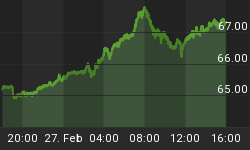Okay, ladies and gentlemen, a show of hands: Who enjoyed seeing the grammar mistakes in their English papers marked up in red ink by the teacher?
No hands? Good. Since this audience includes no gluttons for punishment, I can state the obvious: OF COURSE no one enjoys having their grammar corrected. Even most educated people probably see the fine points of grammar and linguistics as little more than calculus brought to the written word.
So what odds would you give that a 200-page book of instruction on proper grammar could become an off-the-chart bestseller first in the United Kingdom and then in the United States? Whatever odds you offered I'd have taken -- before the publication of Eats, Shoots & Leaves, that is, which is now in its 17th week on The New York Times bestseller list, longer than any other current nonfiction hardcover.
If that seems like a long shot, here's one that may seem longer still: This book paid off against all odds because of a strong, growing, yet little-understood negative psychology that has spread from the stock market to politics to publishing, and beyond. Eats, Shoots & Leaves is but one example of this larger social mood, though a potent one indeed.
No one has been more surprised by the book's success than its author, Lynn Truss, who candidly makes this point in her preface. The dust jacket includes the exhortation, "Sticklers Unite!", but here too, the author doubts it will happen:
"Grammatical sticklers are the worst people for finding common cause because it is in their nature (obviously) to pick holes in everyone, even their best friends."
Which is to say, even she can't explain why her book has succeeded. Its prose is simple and lively, the tone self-deprecating. She writes more like a sports columnist than an over-educated grammarian, which is understandable, since "sports columnist" was Ms. Truss's job description for four years.
So, naturally, Eats, Shoots & Leaves managed to stir a small commotion in predictable quarters, namely among the over-educated grammarians who were obliged to review Ms. Truss's book in prestigious publications on both sides of the Atlantic. The Times of London gave it a 1,400-word review, which admired the author but was thumbs down on the book. Not to be outdone, The New Yorker magazine ran a 2,800 word essay that was thumbs down on the book AND the author.
The reviewer at The New Yorker -- a PhD and Professor of English at a prominent university -- was unhinged to the point that he even harrumphs that the book itself "might be a hoax." The good professor arrived at this suspicion because of the punctuation (and other) mistakes he claimed to find in Eats, Shoots & Leaves, several of which he was pleased to detail in his long review.
Alas, a critic who points out the irony of sloppy mistakes in a book about good punctuation had better be sure that his own critique is slop-free. This the professor (and his editor) did not do. After cataloguing Ms. Truss's "departure from punctuation norms," he moves on to discuss the mystery of creating a literary "voice" and declares, "Grammatical correctness doesn't insure it."
Insure refers to what insurance companies do; it's the wrong verb for that sentence. The professor should have used "ensure."
Yes, I realize that now I'm playing the same game, and that I just opened my own writing up to the fine-toothed combs of the world. It's a sport that can rapidly make adults seem like moody children whose squabbles end with "nya-nya-nya."
What to make of it? Well, the key word in the paragraph above is "moody." The book's fans and detractors both have managed to contribute to the psychology that made Eats, Shoots & Leaves a success to begin with -- namely, the widespread downturn in social mood that began the bear market in stocks back in 2000 and is still unfolding today.
After-the-fact explanations of success often sound plausible, if a bit too convenient. It's not hard to connect dots that are already in place. But what about a discussion of social mood change before the bear market began? Consider this observation from analyst Robert Prechter, in his 1996 book, Prechter's Perspective.
"The stock market is literally a drawing of how the scales of mass mood are tipping, but the same social psychology that is reflected in the stock market shows up in other areas. We just don't have charts of their activities."
We may not have stock charts for books like Eats, Shoots & Leaves, yet bestseller lists are plenty good enough. In October of last year, Prechter's Elliott Wave Theorist included a table of the contrasts between a bullish vs. a bearish social mood. Among them were:
Inclusion vs. Exclusion
Liberality vs. Restriction
Tendency to Praise vs. Tendency to Criticize
It's perfectly clear which side of these contrasts a book of grammar instruction belongs on. And yes, proper grammar is always correct; but can you tell me the last time it was in style?
This book -- and hundreds of other overlooked measures of social mood -- does not exist in a vacuum. Which is the greater leap of faith: to think it's a coincidence for a grammar book to sit atop The New York Times bestseller list for months, or to see something larger at work?
If "something larger" sounds more plausible to you, then follow the rest of the evidence that reveals the trend in mass psychology. It will take you on an enlightening tour that passes through politics, the economy, and culture, then full circle back to finance and your portfolio. If you like making "informed" choices, you will never have felt so well equipped.















